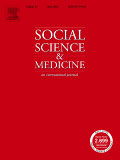Article: "From global bioethics to ethical governance of biomedical research collaborations"
Article by Ayo Wahlberg, et al. in “Social Science & Medicine” , 2013. Standardisation of global bioethics
Standardisation of global bioethics
One of the features of advanced life sciences research in recent years has been its internationalisation, with countries such as China and South Korea considered ‘emerging biotech locations’. As a result, cross-continental collaborations are becoming common generating moves towards ethical and legal standardisation under the rubric of ‘global bioethics’.
Such ‘global’, ‘Western’ or ‘universal’ bioethics have in turn been critiqued as an imposition upon resource-poor, non-Western or local medical settings.
New conceptualisation of ethical governance
This article proposes that a different tack is necessary if we are to come to grips with the ethical challenges that inter-continental biomedical research collaborations generate. In particular the authors ask how national systems of ethical governance of life science research might cope with increasingly global research collaborations with a focus on Sino-European collaboration.
Four ‘spheres’ are proposed as a helpful way to conceptualise national systems of ethical governance:
- Deliberation
- Regulation
- Oversight
- Interaction
Cross-continental research challenges
Using a workshop-based mapping methodology (workshops held in Beijing, Shanghai, Changsha, Xian, Shenzen and London) the authors identified three specific ethical challenges arising from cross-continental research collaborations:
- Ambiguity as to which regulations are applicable
- Lack of ethical review capacity not only among ethical review board members but also collaborating scientists
- Already complex researcher-research subject interaction is further complicated when many nationalities are involved.
